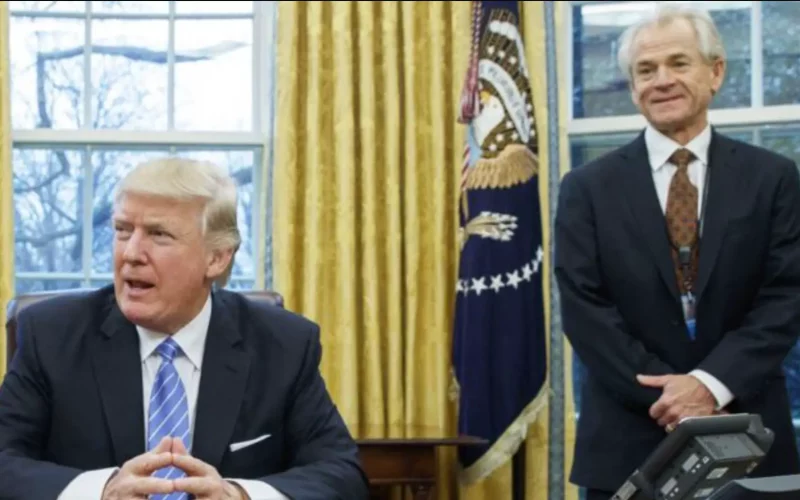Peter Navarro, a prominent figure from the Trump administration, has been found guilty of two counts of contempt by a Washington, D.C. jury, as reported by the Associated Press.
The verdict follows a trial marked by accusations of political bias and alleged ‘lawfare’ tactics by Democrats.
Prosecutors asserted that Navarro demonstrated a belief that he was ‘above the law’ by refusing to comply with a subpoena from the House Jan. 6 committee, which had requested his documents and testimony. He now faces two misdemeanor charges of contempt of Congress, each carrying a potential sentence of up to one year in jail.
Navarro became the second Trump aide to confront contempt of Congress charges following former White House advisor Steve Bannon’s case. Bannon was found guilty on two counts and received a four-month prison sentence, although he remains free while awaiting appeal.
Navarro has pledged to appeal the verdict, contending that the outcome was predetermined after a judge ruled against his argument that he couldn’t cooperate with the committee due to Trump’s invocation of executive privilege.
“This is a landmark case that’s bound for the Supreme Court,” Navarro said. Defense attorney John Rowley echoed that, saying “this case is not over by a long shot.”
Earlier this month, Navarro criticized the Department of Justice (DOJ) for its handling of his case. In a tweet from September 6, he accused the DOJ of being ‘weaponized’ and voiced his dissatisfaction with their emphasis on the events of January 6th, rather than addressing the specifics of his case.
“Weaponized [DOJ] starts case by waving the J6 bloody shirt rather than arguing the case. No scruples. No surprise,” he said.
“Jury in deliberations now. We’re in God’s hands now. The only thing certain are more legal bills. That’s the Democrat’s lawfare game. Will have more once verdict is in. In the meantime, you can help me fight these weaponized partisan bastards,” he added.
As the jury entered deliberations, Navarro took to Twitter/X to convey his feelings. ‘We’re in God’s hands now,’ he wrote, highlighting the mounting legal expenses associated with his trial. He criticized the proceedings as part of the ‘Democrat’s lawfare game,’ insinuating that the legal challenges he faced were driven by political motivations.
Elizabeth Aloi, a lawyer from the Justice Department, stressed that for the government to function effectively, individuals must adhere to regulations and face consequences for non-compliance. The subpoena – it is not hard to understand,” she said, adding that Navarro was fully aware of “what he was required to do and when he was required to do it.”
Stanley Woodward, representing Navarro, contested the notion that the subpoena was clear-cut. He argued that it did not provide a precise location within the Capitol complex where Navarro was expected for his testimony. Furthermore, Woodward contended that the prosecution failed to prove that Navarro’s non-compliance was intentional.
He suggested that the lack of compliance could have been an oversight or a mistake.
“Why didn’t the government present evidence to you about where Dr. Navarro was or what he was doing” on the designated day of the deposition, Woodward said to the jury. “Something stinks.”
Many individuals have expressed concerns about the potential politicization of the justice system, particularly in high-profile cases involving figures from the Trump administration. Navarro’s conviction is likely to heighten these concerns, with many perceiving the trial as another instance of political retaliation.

